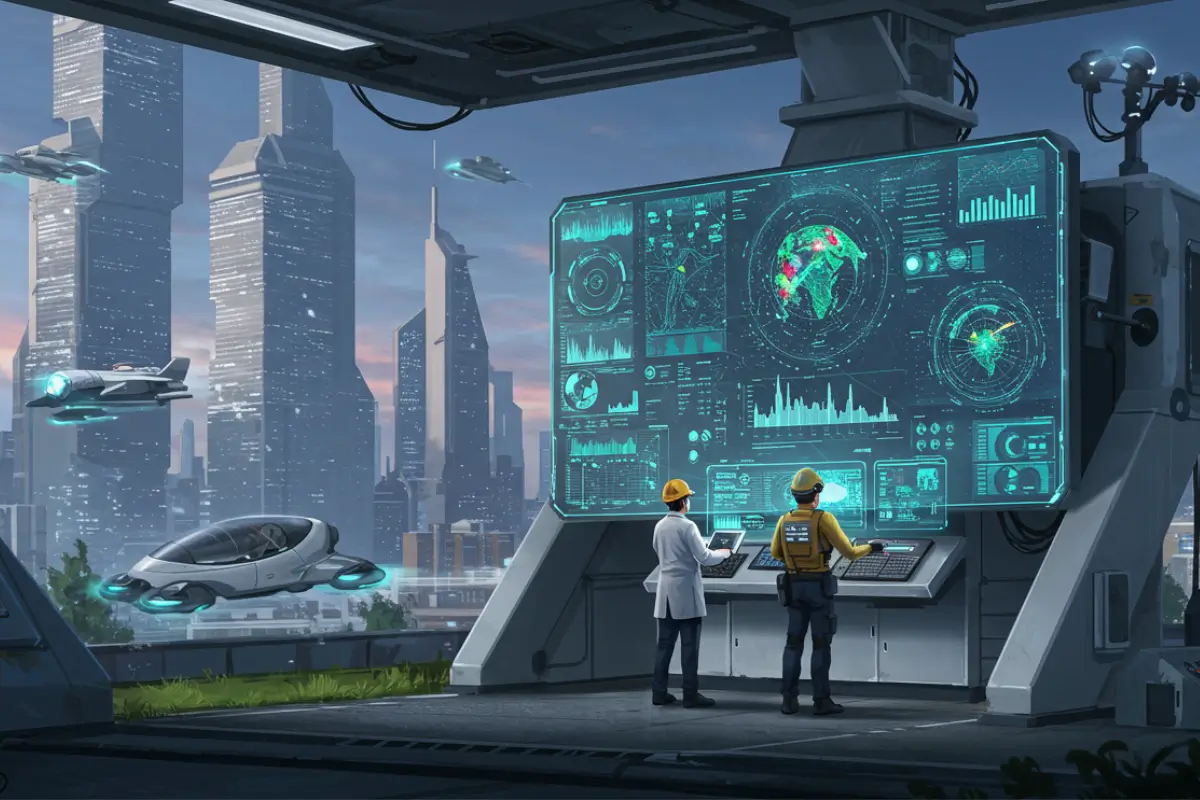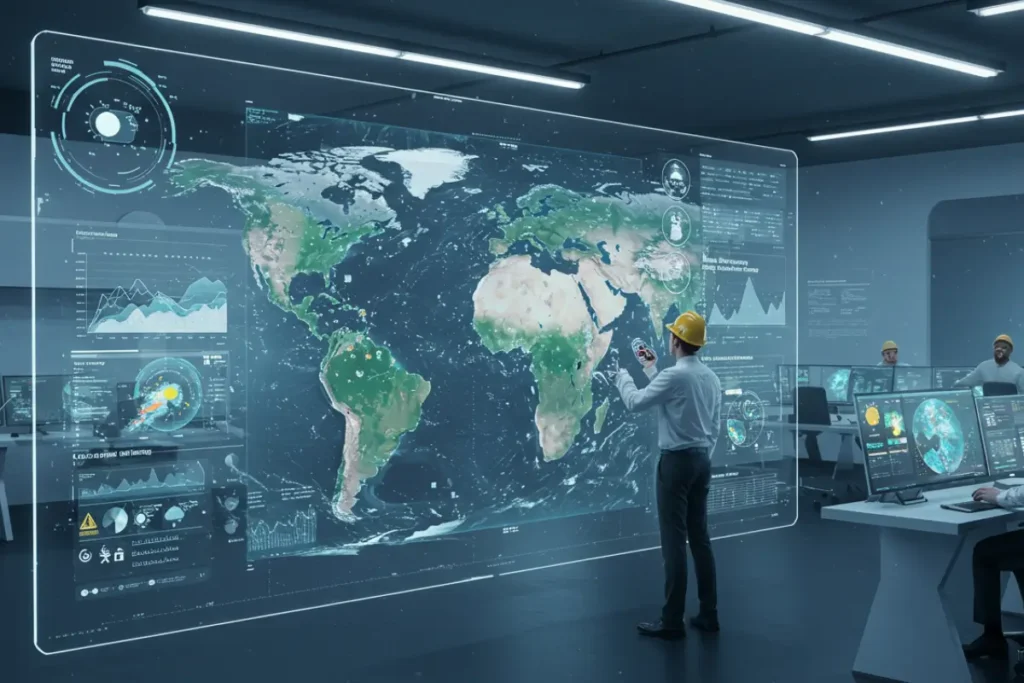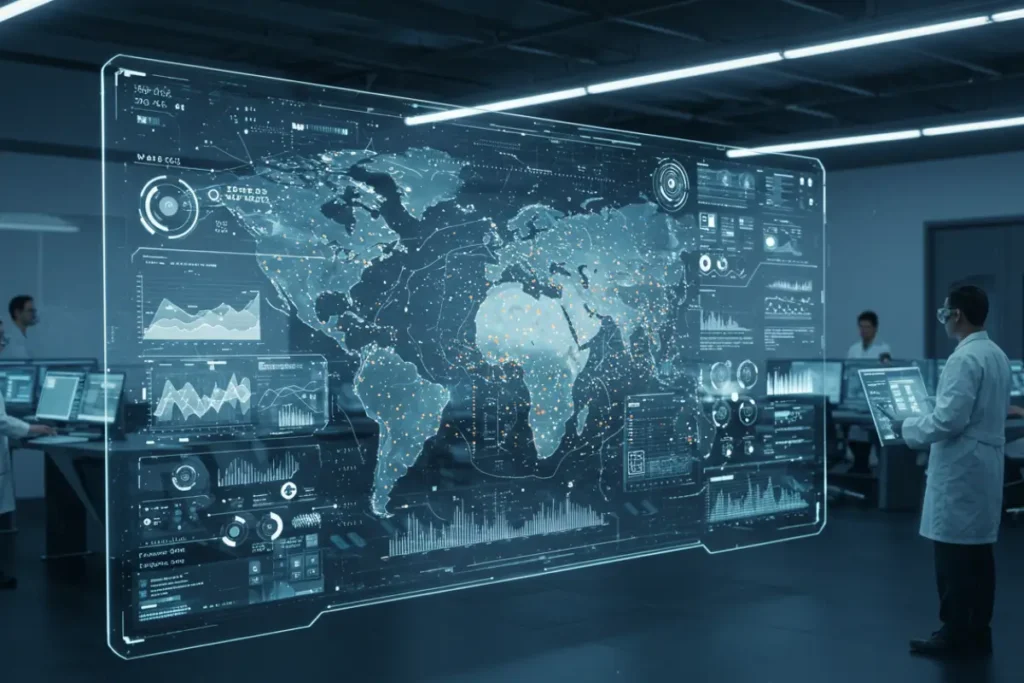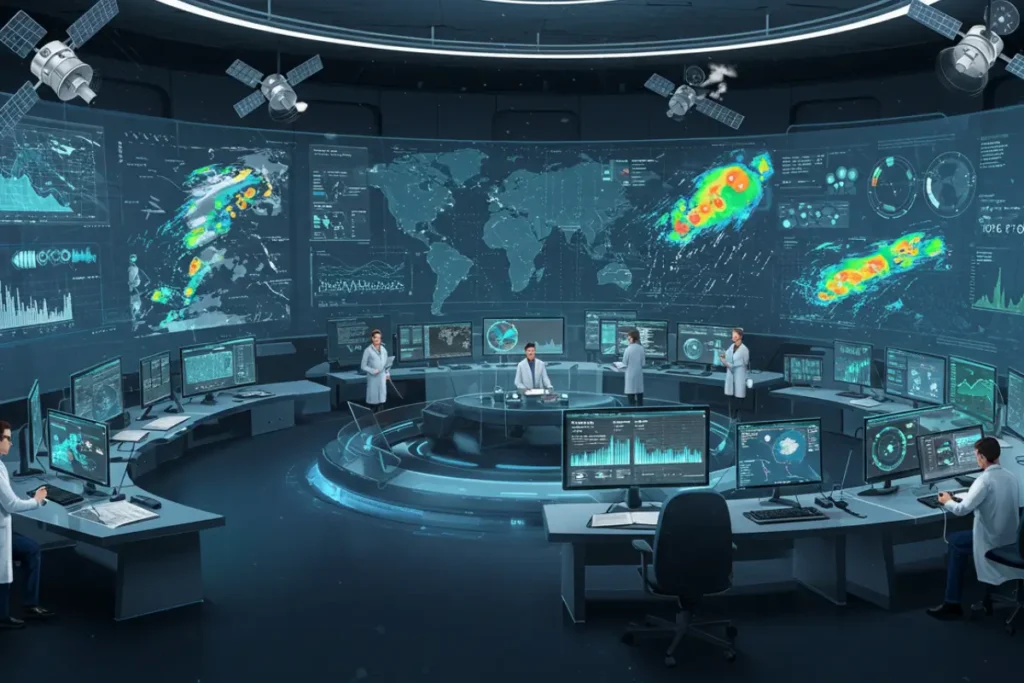The Future of AI-Powered Weather Forecasting
- March 23, 2025
- 0
If you rely on your phone’s weather app, you might have noticed that predictions aren’t always accurate. That’s because traditional forecasting methods struggle with the chaotic nature of
If you rely on your phone’s weather app, you might have noticed that predictions aren’t always accurate. That’s because traditional forecasting methods struggle with the chaotic nature of

If you rely on your phone’s weather app, you might have noticed that predictions aren’t always accurate. That’s because traditional forecasting methods struggle with the chaotic nature of weather systems.
remembering that climate is always something very scientific, so yes, it will help professionals in the area a lot.
But what if artificial intelligence (AI) could revolutionize how we predict the weather? Well, it’s already happening, and the future looks incredibly promising.

For decades, meteorologists have relied on numerical weather prediction (NWP) models, which use mathematical equations to simulate atmospheric conditions.
While these models have improved, they still have limitations—especially in handling complex weather patterns.
AI, on the other hand, can analyze vast amounts of data in real-time, learning patterns that humans and traditional models might miss.
Here’s how AI is changing the game:
Deep learning, a subset of AI, mimics the way the human brain processes information. Instead of relying solely on historical weather patterns, deep learning models analyze live satellite images, radar data, and atmospheric conditions.
One example is Google’s DeepMind, which developed a model called GraphCast, capable of predicting weather patterns up to 10 days in advance with higher accuracy than traditional methods.
NASA, NOAA, and private companies like IBM and Microsoft are also integrating AI into their weather forecasting systems.

Farmers depend on weather predictions to decide when to plant, water, and harvest crops. AI helps by:
Airlines need accurate forecasts to avoid turbulence and bad weather. AI can:
AI-driven models track hurricanes, tsunamis, and wildfires with greater precision. This allows:
Cities can integrate AI-driven weather forecasting to:
While AI is powerful, it’s not perfect. There are still challenges to overcome:
The future looks bright for AI-powered weather prediction. In the next decade, we could see:

AI is not just improving weather forecasting—it’s revolutionizing how we understand and prepare for weather conditions.
I think this will definitely make the weather forecast more accurate.
If you enjoyed this article, don’t forget to share it with your friends and comment below! 🌍💬 What’s the most surprising weather event you’ve ever experienced? Let’s discuss!
AI models, like GraphCast, have been shown to outperform traditional numerical weather prediction models, offering more accurate forecasts up to 10 days in advance.
Yes! AI can analyze satellite images, radar data, and atmospheric conditions to predict extreme weather events with greater precision.
Not entirely. AI enhances forecasting, but human experts are still essential for interpreting data and making critical decisions.
Tech giants like Google DeepMind, IBM, and Microsoft, as well as government agencies like NOAA and NASA, are at the forefront of AI-powered weather forecasting.
For more in-depth research, check out NOAA’s AI Initiatives and Google DeepMind’s GraphCast.
📌 Want to explore more about AI’s future? Check out our article on The Future of AI in Space Exploration.